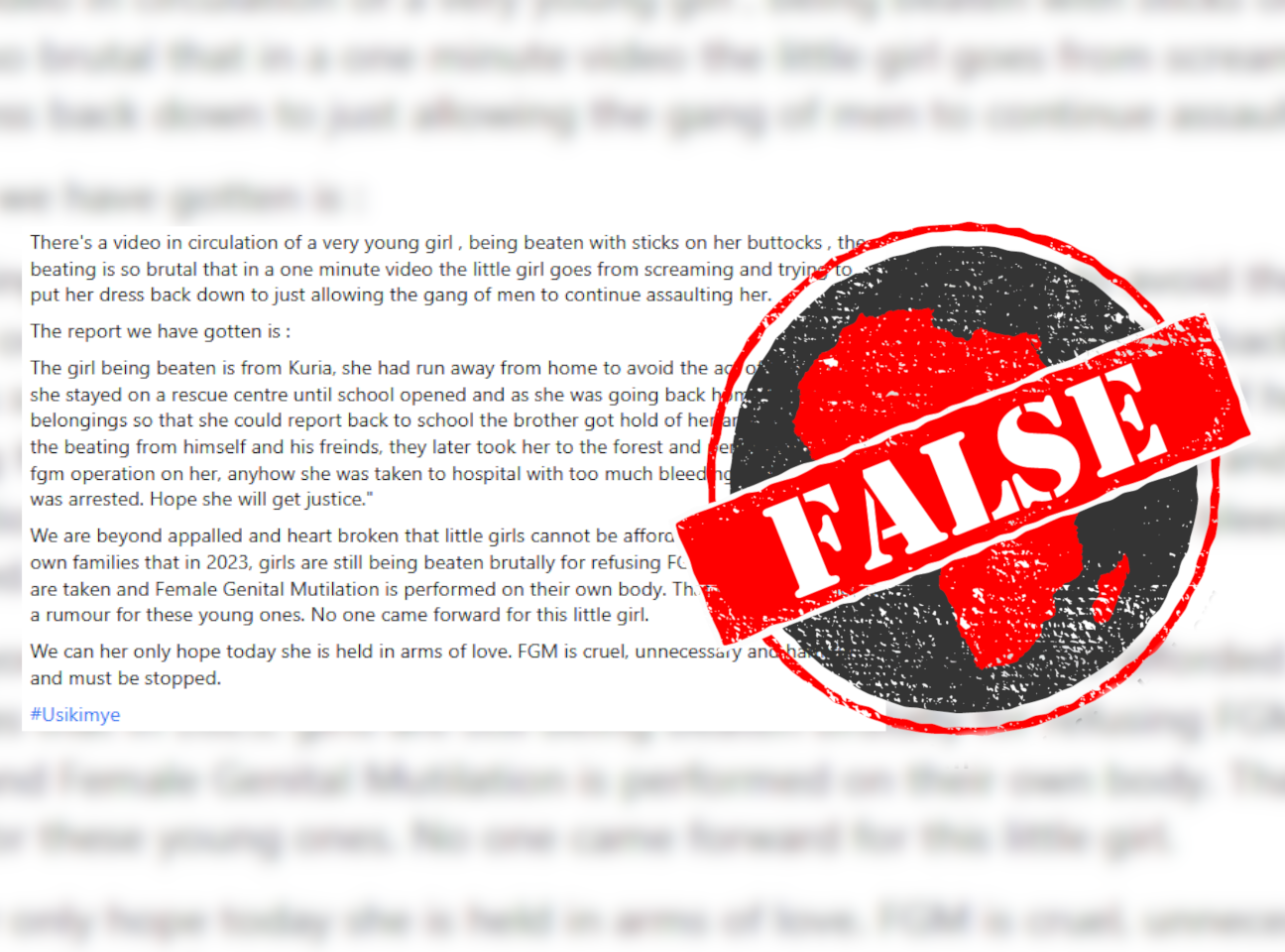IN SHORT: A disturbing video of a girl being assaulted by a group of men has been shared online with the claim the incident took place in Kenya and that the girl was being punished for running away from home because of the threat of female genital mutilation. But the video was shot in the DRC, and there is no clear evidence of a link to the harmful practice of FGM.
Warning: This report includes links to a video showing a violent assault which may be upsetting to readers.
A disturbing video showing a group of men holding down a young girl and brutally beating her with sticks has been making the rounds on Facebook.
The posts sharing the video claim that the girl is from Kuria, a region in Kenya’s southwestern county of Migori.
According to the lengthy caption, the girl ran away from home to avoid female genital mutilation (FGM). She stayed at a rescue centre but had to return home to collect her belongings.
The post claims that her brother initiated the brutal beating and then took her to a forest where the group of men performed FGM.
It ends by claiming that she was hospitalised due to excessive bleeding and that the brother had been arrested.
The Kuria community has one of Kenya’s highest rates of FGM. This is despite Kenya criminalising the practice, with those found guilty facing a life sentence.
The video has been posted here, here, here , here and here and there’s little doubt that it is an upsetting watch.
But is the caption to it an accurate description of what happened? We checked.

Video recorded in DRC, not Kenya
A Google reverse search of frames taken from the clip using the InVID search tool shows that a screenshot of this video surfaced online on 23 January 2023.
This was in news reports published in the Democratic Republic of the Congo (DRC).
According to one article, the photo illustrated the inhumane treatment inflicted on women and underage girls by Mai-Mai Malaika militiamen. They operate in the rural communities in the Kabambare territory, Maniema province, in the east of the DRC.
Women and girls in the region who wear miniskirts or pants become the targets of violent attacks.
In another article, the photo of the girl lying on the ground while being flogged appears among others of women being assaulted. The caption of the photo reads: “ … a teenage girl receives at least 50 sticks on her bare buttocks from the three men.”
According to the article, the video first appeared on social media on 20 January, but the events took place in the village of Machapano, about 17 kilometres from the district of Salamabila, at the end of December or beginning of January.
Some words of Kiswahili can be heard in the video, which is widely spoken in Kenya. But Kiswahili is also spoken in parts of the DRC, and this is where the video was shot, not in Kenya. There is also no evidence the incident was linked to FGM.
Republish our content for free
For publishers: what to do if your post is rated false
A fact-checker has rated your Facebook or Instagram post as “false”, “altered”, “partly false” or “missing context”. This could have serious consequences. What do you do?
Click on our guide for the steps you should follow.
Publishers guideAfrica Check teams up with Facebook
Africa Check is a partner in Meta's third-party fact-checking programme to help stop the spread of false information on social media.
The content we rate as “false” will be downgraded on Facebook and Instagram. This means fewer people will see it.
You can also help identify false information on Facebook. This guide explains how.



Add new comment